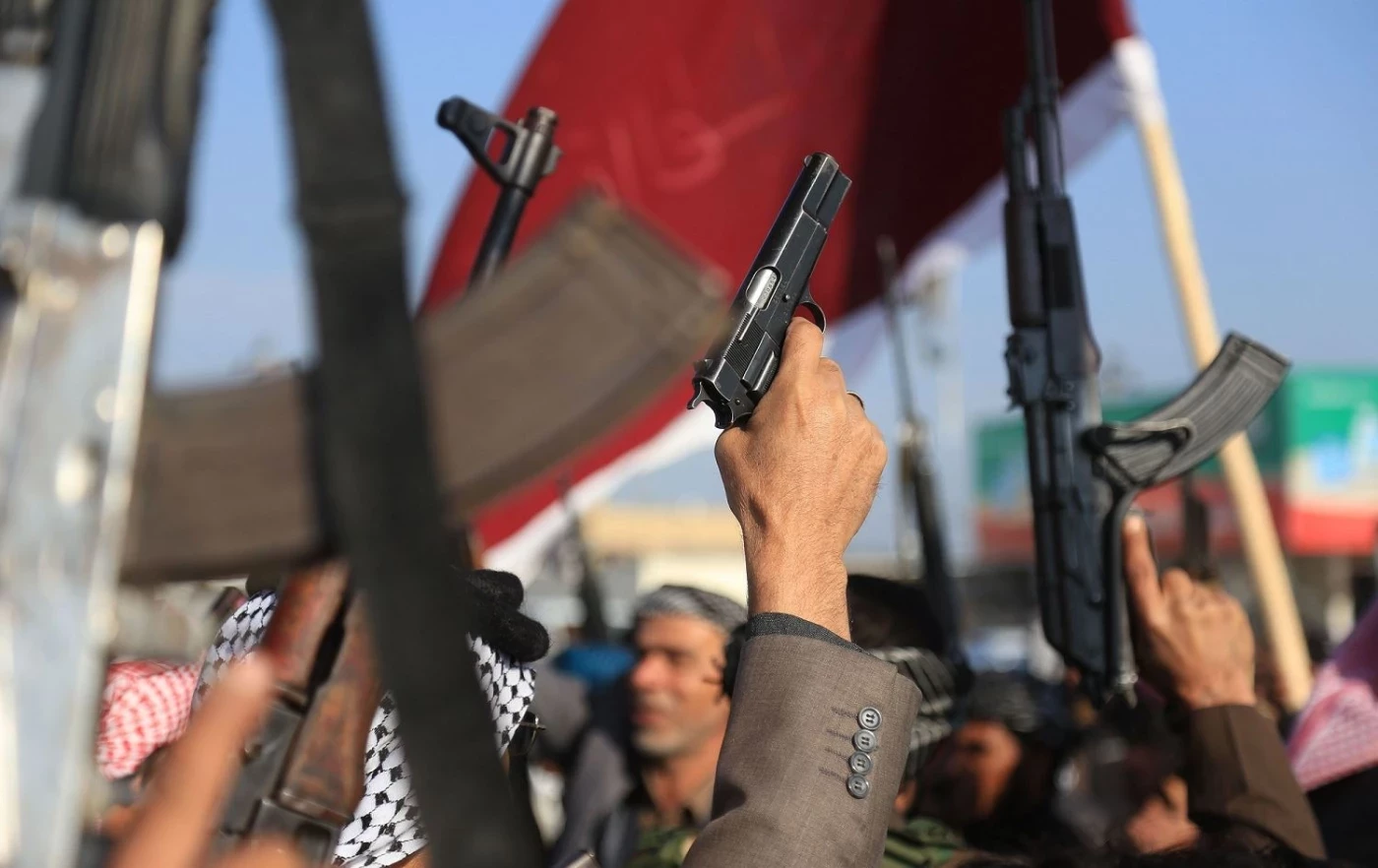ERBIL, Kurdistan Region of Iraq - A tribal dispute over a plot of land in Dhi Qar province escalated Saturday into a serious incident that left an Iraqi army officer detained and his cousin injured, according to a police source.
The source told The New Region that the officer, who holds the rank of captain and was on regular leave from the army, became involved in a confrontation between the Janih and Shuairat tribes.
The source added that an armed group from one of the tribes managed to surround him at the scene, detain him by force, and confiscate his weapon. His cousin was also injured during the incident.
A large Dhi Qar police force deployed to the site of the dispute and launched search operations to recover the officer. Police also began pursuing those accused of fueling the tribal conflict.
After years of tribal conflicts, Iraq’s Dhi Qar province has seen a sharp decline in violence, with only 25 disputes recorded in early 2025 compared to 158 in 2023.
Sheikh Nafi' al-Shami of the al-Bu Shama tribe told The New Region that “the weapons held by the tribes in large numbers cannot be completely confined or confiscated by security forces, as they are part of the history and identity of these tribal communities,” noting that “the law grants citizens one licensed weapon, but the reality reveals an unlimited arsenal."
Illegal weapons in Iraq stand out as one of the most pressing challenges to security and stability in Iraq, with Prime Minister Mohammed Shia’ al-Sudani repeatedly pledging to address the issue beyond the scope of official and legitimate state institutions in his government program.
Unofficial data puts the number of arms within the Iraqi society at around 15 million pieces of medium and light weapons, with armed groups and tribes possessing the bulk of them.
Iraq’s Ministry of the Interior announced in early March that it would continue to buy medium-range weapons from the public as part of the government’s efforts to confine arms to the state, while announcing the extension of a nationwide process for registering arms owned by civilians until the end of this year.
According to the Global Organized Crime Index for 2023, published by the Global Initiative to Combat Transnational Organized Crime, Iraq was categorized in the third group, signifying "a high crime rate and low resilience." This places the country among those with elevated levels of organized crime. Iraq came eighth, signaling a substantial risk level, with financial crimes and weapons trade being the most hazardous criminal markets. Additionally, foreign actors ranked at the forefront of criminal entities operating within the country.



 Facebook
Facebook
 LinkedIn
LinkedIn
 Telegram
Telegram
 X
X


